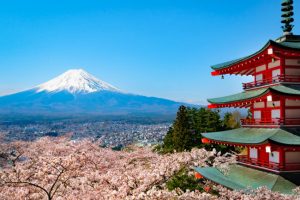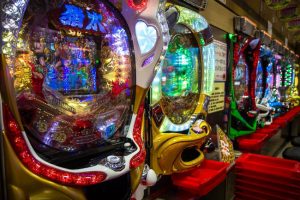 The Japanese government is planning to introduce very strict regulations to address problem gambling in a market where integrated casino resorts are about to open for the first time. The new proposal includes a system which would allow family members to ban problem gamblers from entering casinos or to limit their visits.
The Japanese government is planning to introduce very strict regulations to address problem gambling in a market where integrated casino resorts are about to open for the first time. The new proposal includes a system which would allow family members to ban problem gamblers from entering casinos or to limit their visits.
The coalition government led by the ruling Liberal Democratic Party is still discussing a plan to limit the harmful effects of gambling on people. The latest proposal says that Japanese nationals and foreigners who reside within the country would be able to apply for self-exclusion, while their family members would be able to limit their casino visits or ban them altogether if these individuals are gambling addicts or considered in risk, The Japan Times reported on Thursday. The proposal would be submitted to the Diet, sources in the government and the ruling bloc said on Wednesday.
Casino operators would be obliged to monitor the number and frequency of visits of their customers and to restrict their access if necessary. In addition, a maximum number of 10 casino visits per month would be allowed, while there would be an entry fee of ¥2,000. In order to track individuals’ visits to different casino resorts, authorities are proposing a rigorous identification process that may include not only checking visitors’ official government My Number identity cards (which have an embedded IC chip), but also certain biometrics. According to some sources, this would consist of an advanced facial recognition technology or even vein recognition.
The restrictions and the casino entry ban could be lifted provided the individual in question submits an official document that shows they have undergone counseling, The Japan Times added. If they are considered capable of gambling without the risk of addiction, they would be allowed within the premises. All these rules and restrictions are designed to cut the number of local gambling addicts and, therefore, would not apply to tourists.
Why the Government Tries to Restrict Residents from Entering Casinos
 Under the Penal Code, gambling in Japan is prohibited apart from several exceptions made in separate laws. They permit horse racing, motorcycle and bicycle racing, and motorboat racing, while the popular pachinko machines are considered gaming, not gambling. The ban on casinos was lifted in Japan last year when new legislation allowed them as long as they are part of the so-called “integrated resorts”. These are large properties that combine hotels, convention centers, retail space and other entertainment facilities.
Under the Penal Code, gambling in Japan is prohibited apart from several exceptions made in separate laws. They permit horse racing, motorcycle and bicycle racing, and motorboat racing, while the popular pachinko machines are considered gaming, not gambling. The ban on casinos was lifted in Japan last year when new legislation allowed them as long as they are part of the so-called “integrated resorts”. These are large properties that combine hotels, convention centers, retail space and other entertainment facilities.
These integrated casino resorts are expected to boost inbound tourism numbers, contribute to the regional economic development, and bring in huge tax revenue. The development of casino resorts is viewed by the government and the ruling party as a key factor in making Japan competitive in the Asian market. At the same time, gambling addictions are deemed a serious issue and a threat to the public health. According to a 2017 government survey, 3.2 million people are estimated to have been addicted to gambling at some point in their life, with most of them believed to be addicted to pachinko.
This is why the coalition government is now planning a system that would prohibit certain individuals from entering casinos. Since foreign tourists need to be attracted to the casino resorts, the restrictions, identity checks and probably even the entry fee would apply only to Japanese nationals or foreigners who live in the country.



















